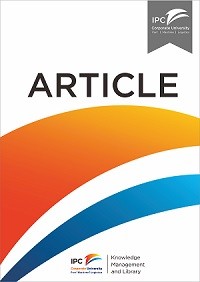Article
Strategic levers of port authorities for industrial ecosystem development
Major ports such as Rotterdam, Antwerp, Houston and Singapore’s Jurong Port host large industrial complexes of (petro)chemical and other energy-intensive process industry firms. Port authorities face the challenge to contribute to both greater international competitiveness and better environmental performance of these complexes. The development of industrial ecosystems, in which firms located in port areas use one another’s residual energy and chemical effluents as input for their own production process, appears to be a promising strategic response to this challenge. In this article, we contribute to port research by examining how port authorities can foster this development within their port-industrial complex. We present a case study of the Port of Rotterdam to empirically capture how the Port of Rotterdam Authority has done so in the last decade by strategically making use of two generic types of policy instruments: (i) investments in physical and knowledge infrastructure and (ii) land allocation. On the basis of the case study and previous literature, we derive a set of strategic levers of port authorities to foster industrial ecosystem development. We discuss implications and challenges for port authorities.
Ketersediaan
Informasi Detail
- Judul Seri
-
Maritime Economics & Logistics
- No. Panggil
-
ATC PO HOL s
- Penerbit
- Oxford : Palgrave Macmillan., 2014
- Deskripsi Fisik
-
18 p.
- Bahasa
-
English
- ISBN/ISSN
-
-
- Klasifikasi
-
PO
- Tipe Isi
-
-
- Tipe Media
-
-
- Tipe Pembawa
-
online resource
- Edisi
-
Vol. 17, 1
- Subjek
- Info Detail Spesifik
-
-
- Pernyataan Tanggungjawab
-
Hollen, Rick M.A.
Versi lain/terkait
Lampiran Berkas
Komentar
Anda harus masuk sebelum memberikan komentar

 Karya Umum
Karya Umum  Filsafat
Filsafat  Agama
Agama  Ilmu-ilmu Sosial
Ilmu-ilmu Sosial  Bahasa
Bahasa  Ilmu-ilmu Murni
Ilmu-ilmu Murni  Ilmu-ilmu Terapan
Ilmu-ilmu Terapan  Kesenian, Hiburan, dan Olahraga
Kesenian, Hiburan, dan Olahraga  Kesusastraan
Kesusastraan  Geografi dan Sejarah
Geografi dan Sejarah